#Laboratory Incubators
Text
water jacketed incubutor
A water-jacketed incubator is a specialized piece of laboratory equipment designed for maintaining a stable temperature environment for biological samples
or cultures. It consists of a main chamber where samples are placed for incubation and a surrounding water jacket that helps regulate and maintain
the internal temperature.

0 notes
Text
Anaerobic Incubator
The LAI-A10 Anaerobic Incubator is a piece of laboratory equipment used to create and maintain anaerobic conditions for experiments or cultures that require an oxygen-free environment. Anaerobic incubators are crucial for growing microorganisms that thrive in environments devoid of oxygen. They typically feature airtight chambers with controlled atmospheric conditions, including temperature, humidity, and gas composition, usually containing a mix of nitrogen, carbon dioxide, and sometimes hydrogen to create the anaerobic environment required.
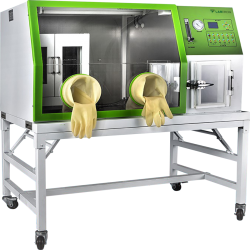
0 notes
Text
The Double Layer Orbital Floor Shaker blends precision engineering with innovative design, offering dual layers for enhanced mixing capabilities. With its orbital motion, it ensures thorough and efficient mixing of substances, ideal for laboratories and research facilities.
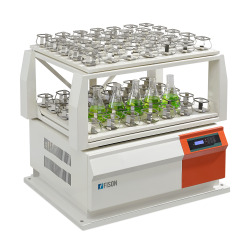
0 notes
Text
What are the key factors to consider when purchasing Laboratory Incubators?
Temperature control is a crucial aspect to contemplate when investing in laboratory incubators. Maintaining a consistent and precise temperature range is necessary for the success of experiments and cultures. Moreover, factors such as humidity levels, CO2 control, size and capacity, automation features, and sterilization methods should also be carefully evaluated before making a decision. These key elements play a significant role in determining the efficiency and reliability of the laboratory incubators, ultimately impacting the quality of research outcomes. Understanding and prioritizing these factors will help you make an informed choice that aligns with your specific laboratory needs and budget constraints.
Types of Laboratory Incubators
For laboratories looking to purchase incubators, it is crucial to understand the different types available in the market. Each type of laboratory incubator caters to specific requirements and applications, making it important to choose the right one for your research needs. To help you make an informed decision, let's explore the various types of laboratory incubators:
CO2 Incubators
Refrigerated Incubators
Shaking Incubators
Multi-Gas Incubators
CO2 Incubators
Types of laboratory incubators, such as CO2 incubators, are designed to provide a controlled environment for cell culture growth. These incubators regulate temperature, humidity, and carbon dioxide levels to mimic the physiological conditions necessary for cell proliferation. CO2 incubators are important for research involving cell lines, tissues, and microorganisms that require a specific CO2 concentration for optimal growth.
When deciding on a CO2 incubator, factors to consider include the capacity, contamination prevention features, and CO2 control precision. It is crucial to choose a CO2 incubator that meets your research requirements and maintains a stable environment for cell culture growth. This ensures reproducible results and prevents experimental variability.
Refrigerated Incubators
For laboratories that require low-temperature settings for storing samples or conducting experiments, refrigerated incubators are an ideal choice. These incubators offer precise temperature control below ambient levels, making them suitable for applications such as microbiology, biotechnology, and pharmaceutical research. Refrigerated incubators are important for preserving samples that are temperature-sensitive or require long-term storage.
It is important to consider the temperature range, uniformity, and energy efficiency when selecting a refrigerated incubator. The ability to maintain a consistent temperature throughout the chamber is crucial for sample integrity and experimental reproducibility. Additionally, energy-efficient features can help reduce operating costs and environmental impact.
Shaking Incubators
On top of temperature and environmental control, shaking incubators provide agitation to samples, facilitating cell culture growth, microbial cultures, and biochemical reactions. These incubators are equipped with a platform that moves samples in a controlled manner, promoting better mixing and oxygenation. Shaking incubators are important for applications requiring consistent agitation and uniform growth conditions.
The versatility of shaking incubators allows researchers to customize shaking speed, temperature, and other parameters to suit their specific experimental needs. This ensures optimal conditions for cell growth, protein expression, and other biological processes. The ability to control agitation levels helps improve cell yields and experimental outcomes.
Multi-Gas Incubators
An important consideration for laboratories conducting research involving anaerobic or microaerophilic organisms is the use of multi-gas incubators. These incubators can control not only CO2 levels but also oxygen, nitrogen, and other gases to create precise atmospheric conditions. Multi-gas incubators are important for studying microbial growth, cell metabolism, and drug sensitivity under different gas compositions.
For instance, researchers studying the effects of varying oxygen levels on cell behavior or investigating the response of pathogens to different gas environments require multi-gas incubators. These incubators provide a versatile platform for creating customized atmospheric conditions to support a wide range of research applications. The ability to control multiple gas parameters ensures the reproducibility and accuracy of experimental results.
Key Considerations for Purchase
Temperature Range and Uniformity
Despite being a fundamental requirement for a laboratory incubator, the temperature range and uniformity are critical factors to consider when making a purchase. The ability of the incubator to maintain a consistent temperature throughout its chamber directly impacts the accuracy and reliability of experiments.
Temperature Range
Uniformity
Ensure the incubator's temperature range meets the requirements of your experiments.
Look for incubators with uniform temperature distribution to prevent hot or cold spots.
The temperature range should cover the necessary spectrum for your research, while uniformity ensures that all samples experience the same conditions, reducing variability and ensuring reproducibility of results.
Humidity and CO2 Control
The control of humidity and CO2 levels within a laboratory incubator is crucial for cell culture applications. Maintaining the desired environmental conditions is important for cell growth, viability, and experimental success.
Temperature plays a significant role in regulating humidity levels inside the incubator. As the temperature rises, the air's ability to hold moisture increases, affecting the humidity levels. It is important to consider this relationship when setting up experiments that require specific humidity conditions.
Size and Capacity
When identifying a laboratory incubator, the size and capacity of the unit are key factors to consider. The incubator should have adequate space to accommodate the volume of samples you plan to work with, without overcrowding or underutilizing the space.
Consider the type and size of containers used for your experiments to ensure they fit comfortably inside the incubator. Additionally, factor in the potential growth of your research projects and choose an incubator with sufficient capacity to accommodate future needs.
Ease of Cleaning and Maintenance
Plus, the ease of cleaning and maintenance of a laboratory incubator contributes to its overall efficiency and longevity. A well-maintained incubator not only ensures the integrity of your samples but also extends the lifespan of the equipment.
Capacity The design of the incubator should facilitate easy cleaning of the interior surfaces and components to prevent contamination and microbial growth. Consider models with removable shelves, rounded corners, and accessible drainage systems for hassle-free maintenance.
Additional Features and Technologies
Programmability and Alarms
Unlike conventional incubators, modern laboratory incubators come equipped with advanced programmability features and alarms that make them highly efficient and user-friendly. With programmable settings, users can easily set precise temperature, humidity, and CO2 levels for their experiments, allowing for accurate and reproducible results. Additionally, alarms can be set to alert users in case of any deviations from the set parameters, ensuring the safety of the samples being incubated.
Furthermore, some incubators offer the flexibility of creating and storing multiple user-defined programs, making it convenient for researchers to switch between different experimental protocols without having to reprogram the settings every time. The programmability and alarm features in modern laboratory incubators not only streamline the incubation process but also contribute to maintaining the integrity of the samples being studied.
Energy Efficiency
The energy efficiency of laboratory incubators is a crucial factor to consider when purchasing these instruments. The latest models of incubators are designed to be energy-efficient, utilizing advanced technologies such as insulated walls, efficient heating elements, and improved airflow systems to minimize energy consumption. This not only helps in reducing operating costs but also contributes to environmental sustainability by lowering carbon footprint.
Any modern laboratory looking to optimize its energy usage and reduce operating expenses should invest in energy-efficient incubators. These models are designed to maintain precise and stable conditions inside the chamber while consuming minimal energy, making them a cost-effective and eco-friendly choice for research facilities.
Data Logging and Connectivity Options
With the advent of digital technology, laboratory incubators now come equipped with data logging capabilities and connectivity options that allow users to monitor and control the incubation process remotely. Data logging features enable users to record temperature, humidity, and other critical parameters over time, providing valuable insights for analysis and documentation.
Options such as USB ports, Wi-Fi connectivity, and compatibility with laboratory management software enable seamless data transfer and real-time monitoring of the incubation process. Researchers can access the data remotely, set alerts, and make necessary adjustments to the parameters, ensuring optimal conditions for their experiments.
Options such as USB ports, Wi-Fi connectivity, and compatibility with laboratory management software enable seamless data transfer and real-time monitoring of the incubation process. Researchers can access the data remotely, set alerts, and make necessary adjustments to the parameters, ensuring optimal conditions for their experiments.
Economic Considerations
Initial Purchase Price vs. Long-Term Costs
Not only should you consider the initial purchase price when buying a laboratory incubator, but also take into account the long-term costs associated with maintenance, energy consumption, and repairs. A cheaper incubator upfront may end up costing more in the long run if it requires frequent repairs or has high energy consumption.
Long-term costs should be carefully evaluated, including factors such as energy efficiency, durability, and maintenance requirements. Investing in a higher quality, more expensive incubator with lower energy consumption and longer lifespan can result in cost savings over time.
Warranty and Service Contracts
For peace of mind and cost savings in the long run, it is vital to consider the warranty and service contracts offered with the laboratory incubator. These contracts can provide coverage for repairs, maintenance, and replacement parts, reducing the risk of unexpected expenses.
For laboratory equipment as critical as an incubator, having a comprehensive warranty and service contract in place can help ensure the equipment functions optimally and prolong its lifespan. It is advisable to opt for extended warranties or service contracts to protect your investment and avoid costly repairs.
Final Words
Considering all points discussed, it is evident that when purchasing laboratory incubators, several key factors must be carefully considered to ensure the right choice is made. Factors such as temperature range, humidity control, capacity, safety features, and ease of maintenance are all crucial in selecting the most suitable incubator for your research needs. By thoroughly evaluating these factors and making informed decisions, researchers can acquire a laboratory incubator that meets their specific requirements and ultimately contributes to the success of their experiments. It is vital to prioritize quality, reliability, and functionality when investing in a laboratory incubator, as these instruments play a vital role in maintaining optimal conditions for cell culture and other sensitive experiments. By understanding and considering these key factors, researchers can make well-informed decisions when purchasing laboratory incubators.
Original Source: https://globallabsupply.blogspot.com/2024/02/what-are-key-factors-to-consider-when.html
0 notes
Text
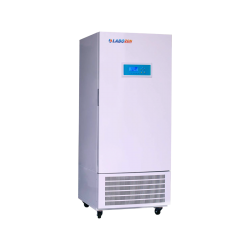
Cooling Incubators
Cooling incubators are specialized laboratory equipment used to create and maintain a controlled environment with low temperatures for incubation. For more, visit www.Labozon.com.
0 notes
Link
If you are looking for a trusted and reliable source for laboratory incubators and accessories, Biotechnical Services Inc. is your destination. With the widest range of incubators and quality as the core strength, you can trust us. Visit us now to know more!
0 notes
Photo

TechnoRat Growth Labs. . “TechnoRats are not born. They are grown.” . Art for War Rats. . . . . . . . . . . . . . . . . . . . . . . . . . . . . . . . . . #laboratory #scifiartwork #laboratorywork #incubators #genetic #geneticengineering #ratart #ratstagram #rattus #ratartist #ratartwork #ratlover #cyberpunkart #technopunk #cybernetics #testtubes #environmentart #gameconceptart #environmentdesign #gameart https://www.instagram.com/p/CgsLQ92KMrN/?igshid=NGJjMDIxMWI=
#laboratory#scifiartwork#laboratorywork#incubators#genetic#geneticengineering#ratart#ratstagram#rattus#ratartist#ratartwork#ratlover#cyberpunkart#technopunk#cybernetics#testtubes#environmentart#gameconceptart#environmentdesign#gameart
3 notes
·
View notes
Text
Vertical Heating Incubator

A vertical heating incubator is a piece of laboratory equipment used to provide controlled temperature conditions for the incubation of biological samples, cell cultures, microbial cultures, and other experiments that require specific temperature settings.The term "vertical" typically refers to the orientation of the incubator, which may have shelves or racks arranged vertically, allowing for efficient use of space while accommodating multiple samples.
0 notes
Text
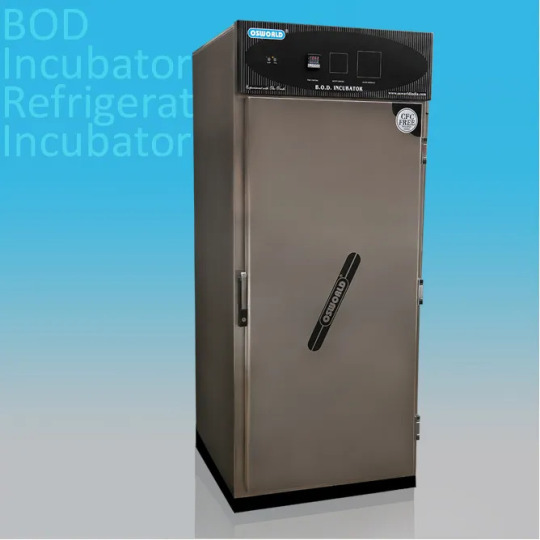
BOD Incubators manufacturers
#BOD Incubator#BOD Incubator manufacturers#BOD Incubator manufacturers in Mumbai#BOD Incubator manufacturers in India#BOD Incubator exporters#BOD Incubator exporters in Mumbai#BOD Incubator exporters in India#refrigerated incubator#refrigerated incubator manufacturers#refrigerated incubator manufacturers in mumbai#refrigerated incubator manufacturers in India#Refrigerated laboratory incubator#Refrigerated laboratory incubator manufacturers in Mumbai#Refrigerated laboratory incubator manufacturers in india#refrigerated incubator exporters#refrigerated incubator exporters in Mumbai#refrigerated incubator exporters in India#BOD Incubator suppliers#BOD Incubator suppliers in Mumbai#BOD Incubator suppliers in India#Refrigerated Incubator suppliers#Refrigerated Incubator suppliers in Mumbai#Refrigerated Incubator suppliers in India
0 notes
Text
What Is A Laboratory Incubator?

A laboratory incubator is a specialized device used to provide controlled conditions for the growth and maintenance of microbiological cultures or other biological samples. It resembles a small oven and typically maintains a specific temperature, humidity, and sometimes even carbon dioxide levels. Coslab India stands out as one of the premier incubator manufacturers in India, offering top-notch quality and reliability.
Contact: +91-9812183773
Mail: [email protected]
#Laboratory Incubator Manufacturers#Best Laboratory Incubator Manufacturers#Top Laboratory Incubator Manufacturers#Laboratory Incubator Manufacturers in India
0 notes
Text
SOP for CO2 Incubator Use in Cell Culture Laboratories
SOP for CO2 Incubator: CO2 incubators are the heart of cell culture labs. They provide the ideal environment for cells to thrive – stable temperature, humidity, and controlled CO2 levels mimicking physiological conditions. This SOP outlines proper use, maintenance, and safety for optimal cell culture outcomes.
SOP for CO2 Incubator Use in Cell Culture Laboratories
SOP for CO2 Incubator Use in…

View On WordPress
0 notes
Text
Bench-top shaking incubutors
Elevate your lab's efficiency with our bench-top shaking incubators. Engineered for versatility, these compact units provide precise temperature regulation
and vigorous shaking, essential for cell cultures, biochemical assays, and microbial growth. Customizable programming allows tailored conditions
to suit diverse experimental needs. Maximize space without compromising performance. Upgrade your workflow today
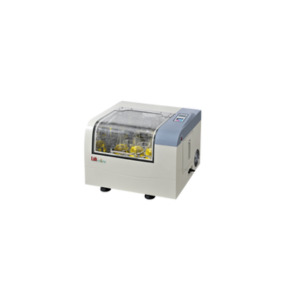
2 notes
·
View notes
Text
What is the Purpose of a Co2 Incubator?
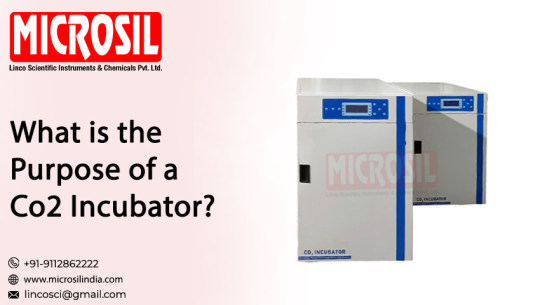
CO2 incubators provide optimal conditions for cell culture, maintaining precise levels of temperature, humidity, and carbon dioxide. These controlled environments support cell growth and viability, crucial for various research and clinical applications. With advanced features like direct heat and infrared sensor technologies, they ensure uniform and stable conditions, fostering reproducible results. Microsil India offers high-quality CO2 incubators designed to provide the ideal environment for cell culture growth. Trust Microsil India for reliable CO2 incubators that ensure optimal conditions for your research and experimentation needs.
#Scientific Instruments Manufacturers in India#Scientific Instruments Suppliers in India#Laboratory Equipment Manufacturers#Laboratory Equipment Suppliers in India#Co2 Incubator#Co2 Incubator Manufacturers#Co2 Incubator Manufacturers in India#Top Co2 Incubator Manufacturers in India#Best Co2 Incubator Manufacturers in India
0 notes
Text
Climate Incubator is a pioneering initiative aimed at fostering innovative solutions and technologies to address the pressing challenges of climate change. Serving as a collaborative hub for entrepreneurs, researchers, policymakers, and investors, Climate Incubator provides a dynamic ecosystem where ideas can flourish, and impactful projects can take root.

0 notes
Text

Constant Temperature Incubator
Need a reliable constant temperature incubator for your lab? Look no further than the Labozon Constant Temperature Incubator. Discover its features and benefits now.
0 notes
Text
Air Jacketed Co2 Incubator - Labexpo USA

Air Jacketed CO2 Incubator delivers a higher level of performance for a dependable and reliable in-vitro growth environment through water jacket that provides true temperature uniformity and CO2 gas control. They are equipped with Hot Air Circulation System and UV light system for periodic sterilization of chamber which stands as the ultimate reason behind a successful incubation. It is designed with polished stainless-steel shelves and semicircular arcs at corners for easy cleaning. It comes with 80 L to 233 L capacity range.
0 notes